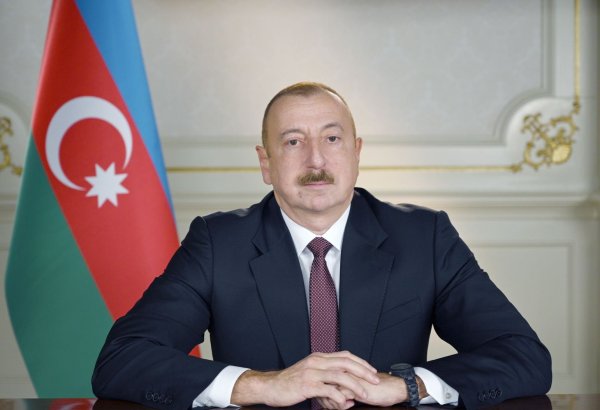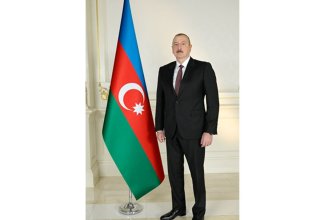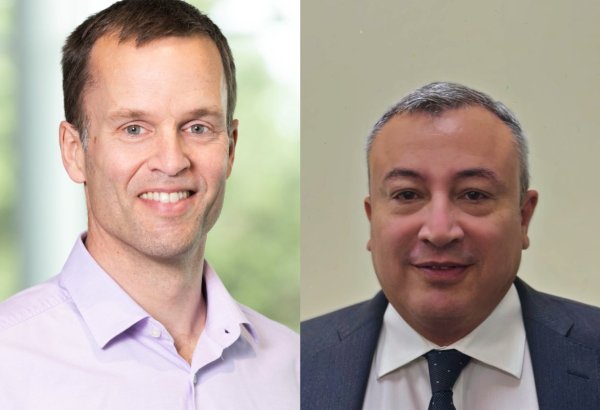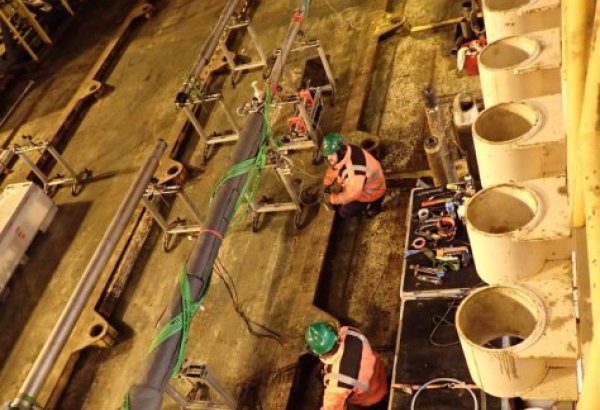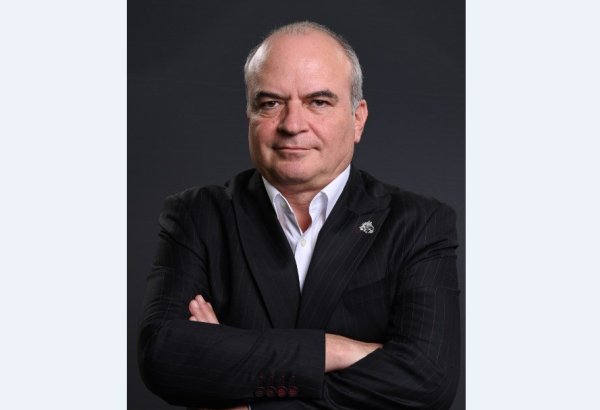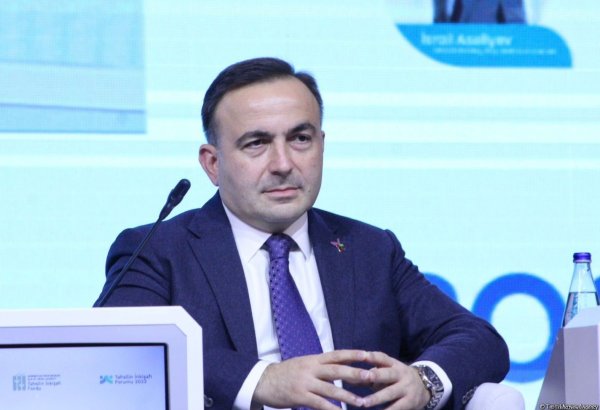BAKU, Azerbaijan, September 17. The Azeri-Chirag-Guneshli (ACG) Caspian field block development project has helped bp strengthen itself as a technology company, the bp's publication (ACG operator) on the eve of celebrating the 30th anniversary of the ACG contract reads, TurkicWorld reports.
“Numerous new technologies from bp have been effectively implemented in ACG operations and development projects in Azerbaijan, with some being utilized for the first time in the Caspian Sea,” the information notes.
One of the bright ideas on the table is vertical drilling (ERD), which lets target wells be set up a good ways off from the platform, thus boosting production potential to new heights.
“The longest ERD well we have drilled so far is 6.4 kilometers from the Chirag platform. We believe this technology will allow us to maximize production from ACG for decades to come,” the publication emphasizes.
Other crucial technological solutions involve drilling at a steep angle (nearly horizontal), which allows the wells to be wrapped up with a thinner formation, thus boosting their productivity.
“We believe that the “bp Well Advisor” used at ACG provides safe, reliable, and efficient well operations by utilizing real-time information. The bp Well Advisor integrated consoles were introduced in the Caspian in 2012 when the casing running console became fully operational on all three Azeri platforms and further on the deepwater Guneshli,” the paper recalls.
According to bp, it takes the cake in the so-called 4D seismic survey.
“We launched a new 4D seismic survey program of the reservoir floor in the ACG field in January 2024. This is bp's largest-ever commitment to a global seismic survey in all its aspects - area size, cost, and program duration. The new program, which focuses on the Balakhani and Fasil ACG reservoirs, covers an area of 740 square kilometers beneath the hydrocarbon source. The program is valued at $370 million and has a duration of five years (2024-2028). The state-of-the-art 4D technology used for this program will allow us to obtain more detailed data about the reservoir, helping us to achieve maximization of field resource recovery in the coming decades,” the publication notes.
Furthermore, the company views Azerbaijan as a hotbed of technological know-how in well completion, which then gets the ball rolling for operations in other regions of bp's endeavors.
“Today at ACG, the standard completion design for producing wells is open-hole gravel packing (OHGP). This was a real breakthrough in the early 2000s, and we still believe it is effective,” the publication reads on.
The company also reported effective distributed temperature sensing (DTS) technology via fiber optic cable (since 2004).
“Moreover, in 2023, bp successfully installed the industry's first “Dual Clad” fiber-optic cable in the ACG fields, enabling simultaneous acquisition and monitoring of DTS and distributed acoustic sensing (DAS) data. This work has resulted in safer and more efficient well operations, integrity, and potentially improved seismic data quality,” bp says.
The company also cited downhole seismic as an important experience at ACG.
“The world's first “Downhole Flow Control Valve” (DHFC), a subsea water injector equipped with expandable sand filters and a downhole flow control valve, was utilized at Guneshli in 2008. The world's first three-zone DHFC-equipped DTS water injector was commissioned in 2018 at ACG - a revolutionary technology to properly manage multi-layered reservoirs. This has opened up opportunities for further applications in other bp regions,” the information on bp noted.
The company also counted the bp Slug Controller, bp Drawdown Controller, Pipeline Inspection Device (PIG), monitoring system using remotely operated vehicles, and Autonomous Underwater Vehicles (AUVs) among the most important technological solutions thanks to ACG.
A recent achievement is that the production platform “ACE” (from which the first oil was obtained in April 2024, is part of ACG) has the concept of remote control (from Sangachal Terminal).
As a result, the ACE operations have put bp in the driver's seat to cultivate future technologies.
To note, bp has been operating in Azerbaijan for 32 years, and its total investments together with its partners in ACG over the 30 years of the ACG project amounted to $45 billion.









